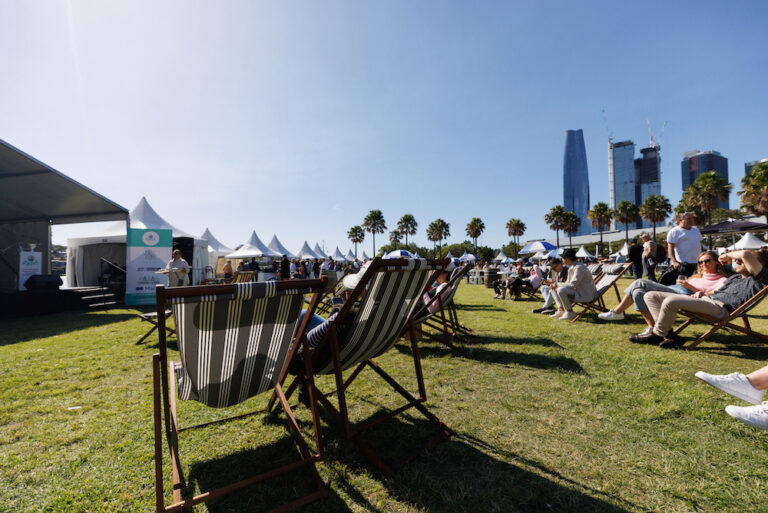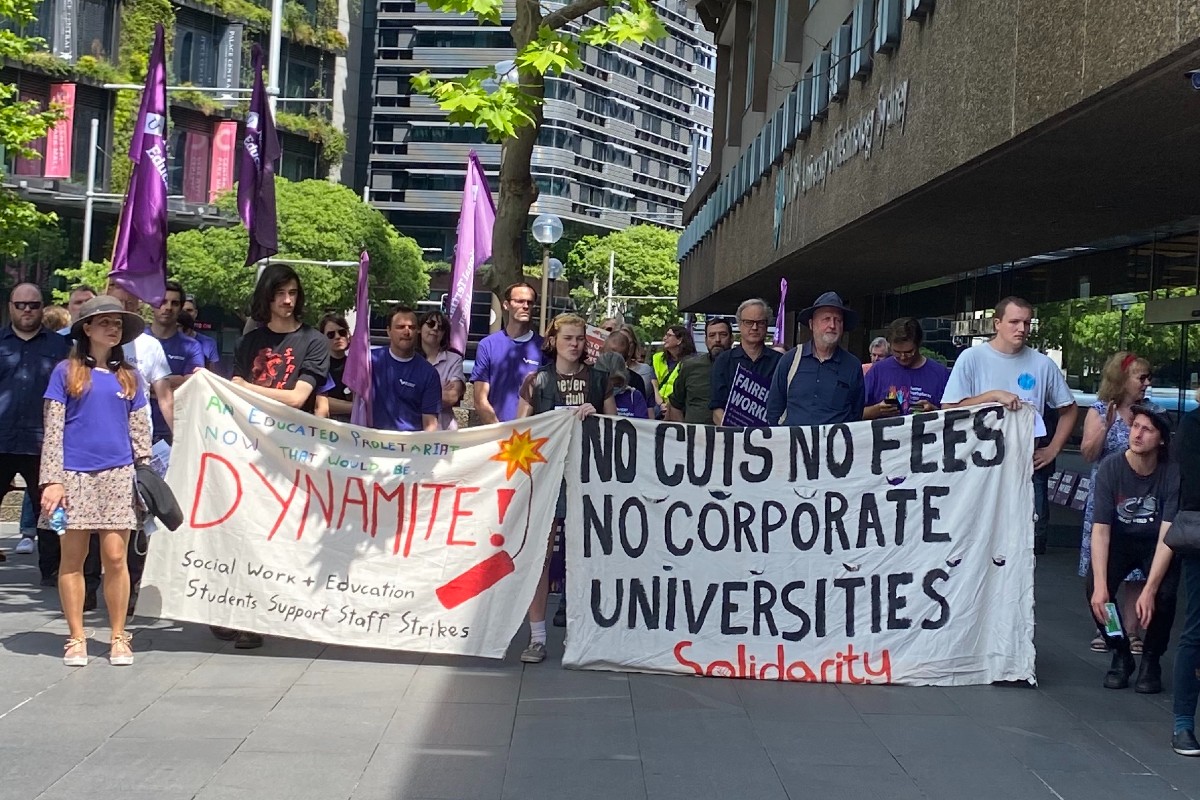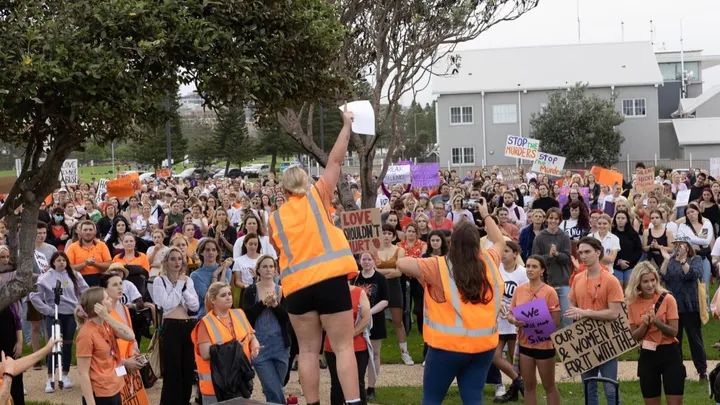
UTS students paying for ‘YouTube degrees’ as staff continue fight for fair work

Image: Student activists standing in solidarity with staff holding banners up at UTS strike. Photo: Christine Lai.
By CHRISTINE LAI
UTS Staff went on strike for a second round of industrial action on Wednesday morning amidst the ongoing fight for a pay rise above inflation and fair working conditions.
UTS Education Officer Cat Doherty described the “first-hand impact of casualisation” on her learning where most tutors are overworked and don’t have the resources or time to adequately teach.
For one of Doherty’s subjects, the release of her assessment marks was delayed by weeks due to understaffed tutors in the faculty. She criticised the absence of “proper marking contracts” which resulted in a lack of protections for staff and was a leading cause in the exploitation of staff.
Doherty mentioned the disarray of course cuts which left some subjects with “staff made to choose between not teaching some weeks or only having one-hour classes.”
“The ‘Issues in Indigenous Australian Education’ subject was cut down from 3 hours to 1.5 hours. UTS has cut class times to avoid paying staff with many classes being replaced by these so-called flipped self-directed learning weeks”, Doherty said.
Class sizes grow and tutors left with minimal paid marking hours
UTS Education Action Group activist Macka Brayan looked to the recent strike action at the University of Sydney where he stood on the picket lines and described NTEU staff as being the “leading edge in union militancy in Australia.”

Brayan referenced an email circulated by UTS in September 2020 where management “were crying poor saying they projected millions of dollars in losses for the next few years” but had turned a surplus “in excess of $100 million this year”.
“They’ve made cuts to employment, courses, services, and a general worsening of casualisation rates. All of this in addition to the erosion of working conditions so that management can squeeze out more of their employees for no extra pay,” Brayan said.
Brayan stated that class sizes at UTS have been “massively inflated but many are yet to return to campus” which has resulted in a majority of students paying “premium prices for what are essentially YouTube degrees in many cases”.
UTS members are on strike today for fair pay, manageable workloads and secure jobs! Let’s remind management who runs this university, and that we’re not going anywhere ✊#UTSStrike #BetterUnis pic.twitter.com/dHaylpk7RT
— NTEU New South Wales (@NTEUNSW) October 19, 2022









